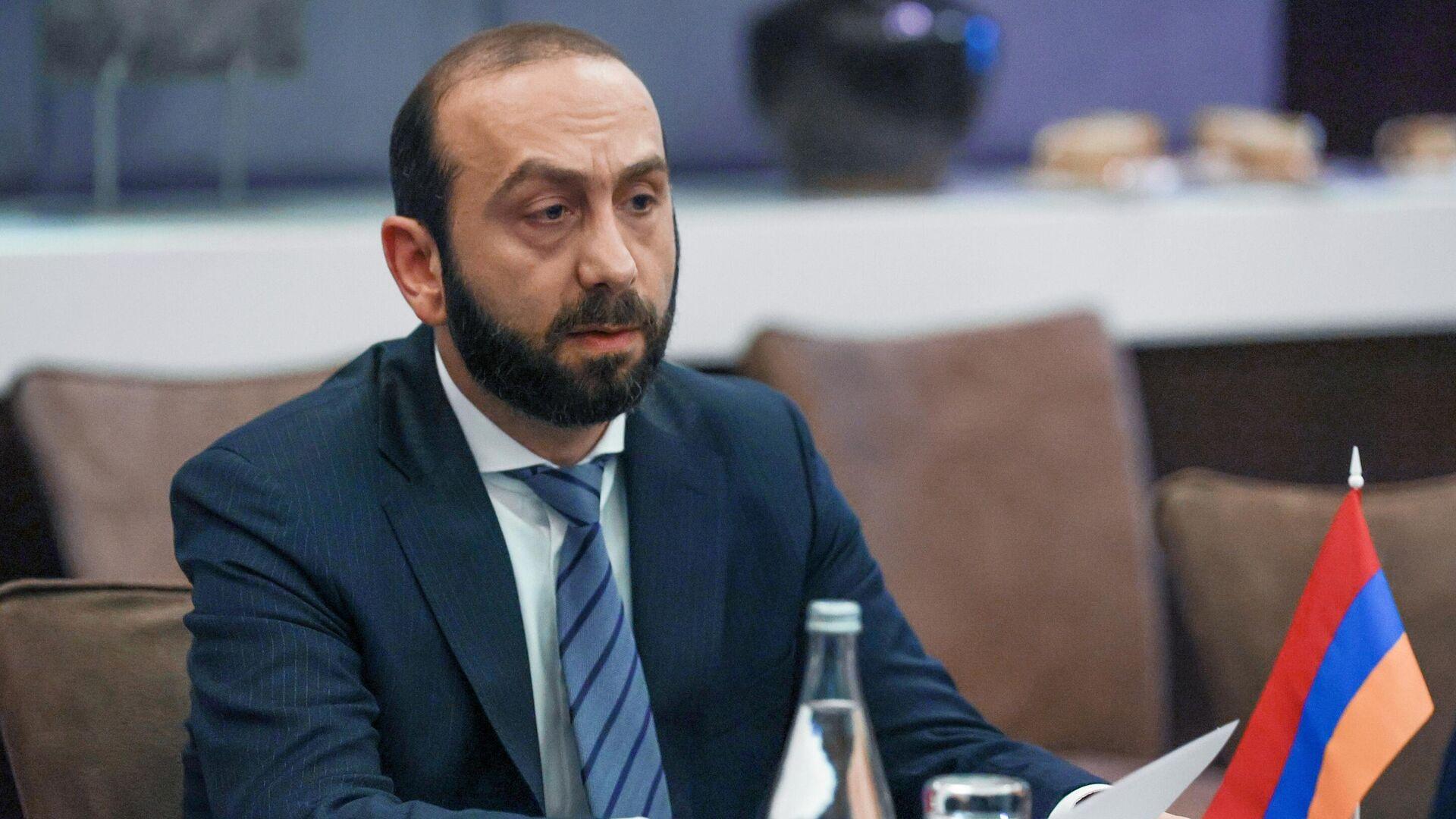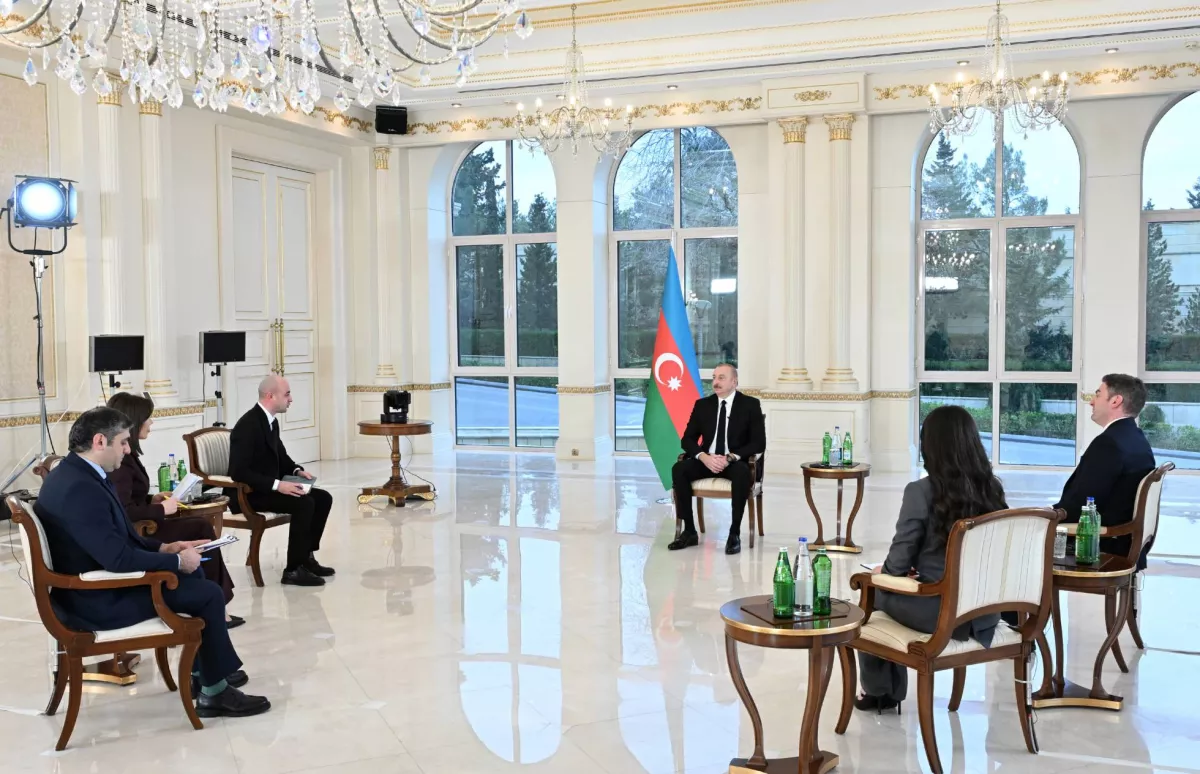Armenia rushes ahead, Washington remains noncommittal Yerevan’s misleading expectations
Currently, Washington has no plans to consider or announce the signing of a strategic partnership document with Armenia. This was the response given by the U.S. State Department to a request from the Armenian service of Voice of America. Essentially, it was a polite diplomatic rebuttal to the bold but unfounded claims made by the official authorities in Yerevan.
Notably, on January 8, Armenia's Foreign Minister Ararat Mirzoyan stated at a press conference that Armenian-American cooperation had already reached a strategic level. He explained that a strategic dialogue had been established, which, according to the agreement between the parties, is intended to evolve into a full strategic partnership. "A document or documents regarding this are certainly under discussion," Mirzoyan added.
Undoubtedly, this is an example of how Mirzoyan hastened to present wishes as reality. Yes, the outgoing U.S. administration did occasionally meet with Armenian officials of various levels, but these meetings and back-patting do not mean that Armenia has attained the status of a strategic partner of the United States. There are several explanations for this. Starting with the fact that although Armenia has "frozen" its participation in the Collective Security Treaty Organization (CSTO), it has not officially left the Organization. The Russian military base in Gyumri has also not disappeared. Finally, Russian border guards continue to patrol the Armenian-Turkish and Armenian-Iranian borders. This set of factors already makes it impossible for Armenia to obtain the status of a strategic partner of the U.S. Accordingly, what we are seeing is merely an attempt by the official authorities in Yerevan to put the cart before the horse, creating a smokescreen, primarily for their own population.

It is also worth reminding that Mirzoyan was speaking about the aspirations of Armenia during the presidency of Joe Biden in the U.S. However, the new U.S. president is Donald Trump, and he has already made a number of notable statements. For instance, during a press conference at his Mar-a-Lago estate in Florida, he expressed his admiration for Turkish President Recep Tayyip Erdoğan, calling him a friend and someone he deeply respects. "President Erdogan is a friend of mine. He's a guy I like, respect. I think he respects me also," said Trump.
It is hardly necessary to explain in detail what all of this means for the prospects of U.S.-Turkish and, by extension, U.S.-Azerbaijani relations. Moreover, there is also the factor of Viktor Orbán. The Prime Minister of Hungary, who is Azerbaijan’s strategic partner, is a trusted confidant and close friend of Donald Trump.
The President of Azerbaijan has already pointed out that Donald Trump’s statements have conveyed very clear and direct messages. "Mr. Trump sends very clear, direct messages with his statements. Now, it might not be possible to analyze all of them, but I can say that the vast majority of them are shared by Azerbaijani society. Therefore, hopes are high. That’s why I said that there is hope, there is great hope. This includes the possibility of advancing U.S.-Azerbaijan strategic relations. I believe that if both sides are interested, we can elevate U.S.-Azerbaijan relations to a strategic level," stated President Ilham Aliyev.

In reality, the situation stands in stark contrast to the claims currently being made by Ararat Mirzoyan. The prospects are not focused on a strategic partnership between Armenia and the United States, but rather on the growing potential for strategic relations between Azerbaijan and the U.S. Furthermore, Azerbaijan is not a member of the CSTO, and there are no foreign military bases on Azerbaijani soil.
Additionally, Azerbaijan does not seek NATO membership, as it already has a strategic alliance with Türkiye. Moreover, Azerbaijan has longstanding and reliable ties with several NATO member states. For instance, it has established very close cooperation with Italy in the military-technical sphere. Similar relationships are actively developing with the Czech Republic, Slovakia, and other NATO members. Furthermore, the incredibly high level of relations between Azerbaijan and Israel speaks for itself.
This alignment serves the national interests of the United States, which is more advantageous for them to rely on the Azerbaijan-Türkiye tandem as the primary regional power. Especially since Azerbaijan has been and remains the initiator and implementer of the most ambitious and successful transportation projects in the region and beyond. Armenia, on the other hand, historically wavering between different patrons, has little to offer the United States. This is the truth that Ararat Mirzoyan conveniently omits, but which the U.S. State Department subtly hints at in its statement.








